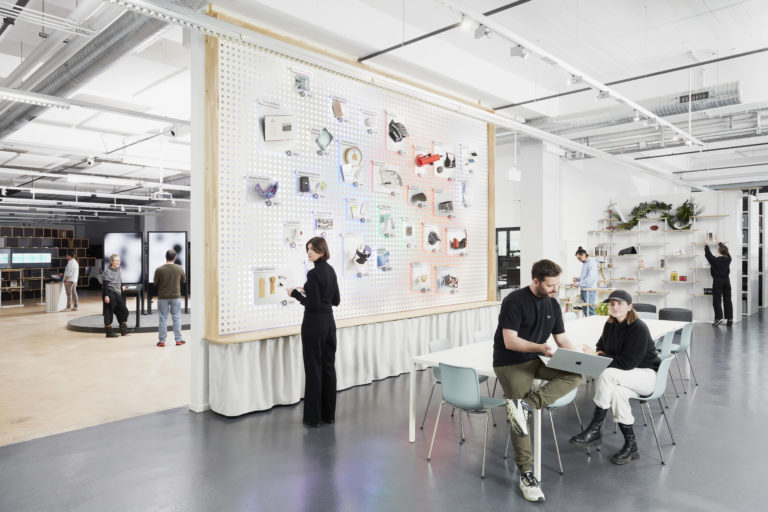Rethinking innovation
Scientific performance and emerging technologies can radically change our outlook on the world. But how can they provide significant benefits for humans and the planet? How can we create innovation with sustainable impact for citizens, the environment and the economy? Health, education, social connections, living spaces, work, media, culture; we need to work on building a better life for everyone, creating things that matter. Many important innovative periods in history, from the Renaissance to the decentralisation of the digital world, have been pushed by a close collaboration between science, technology, creativity and culture.

The EPFL+ECAL Lab’s 15 years of exploration, implemented projects and publications have shown how design research can unite academia, economy and citizens. For example, new inclusive design strategies are able to serve larger audiences, bringing young and old, novices and experts together. It increases impact, enhances dialogue, drives behavioural change and provides benefits to a range of stakeholders.
The lab has also blended academic practices with effective implementation, reducing delays toward application whilst simultaneously contributing to research on human adoption. These outcomes are the results of experience built upon a unique approach, which can be summarised by the following points.
- 1
Human challenges first.
Successful innovation is driven by adoption. It means considering what people will experience, their needs and their subjective perceptions. With our partners, we start from this perspective and then use emerging technologies to create disruptive, impactful and sustainable outcomes.
- 2
Creating together.
Transdisciplinarity is more than just adding disciplines, it involves combining various forms of creativity, knowledge and practices. The EPFL+ECAL Lab has developed a unique methodology to address this, engaging partners and end‑users with its core team of designers, engineers and social scientists.
- 3
Understanding the context and the challenge.
The lab’s process involves a deep investigation of context and a sensitive understanding of the people who will be affected by our designs. We also look to build on existing knowledge from the academy and industry. This allows us to enrich creativity by bringing in multiple perspectives and approaches.
- 4
Effective outcomes.
Design propositions from the lab become real prototypes, evaluated with real people in real contexts. This delivers outcomes which can be implemented in the real world. It is also crucial to understand the factors of success that can help build the future and therefore the production of knowledge is also essential.
- 5
Inclusive and ethical.
Many design propositions from the EPFL+ECAL Lab have addressed larger audiences than expected. An inclusive approach can combine social, economic and environmental benefits. Our practices are validated by EPFL’s Human Research Ethics Committee to maintain trust and privacy with all participants and partners.
With a forward-looking and inclusive design approach, the EPFL+ECAL Lab covers various fields from artificial intelligence and information perception to digital heritage, wellbeing, trust in media, sustainability and food. For each project, in-depth research work and qualitative user perception studies make it possible to rethink the use of emerging technologies and create sustainable innovation.

